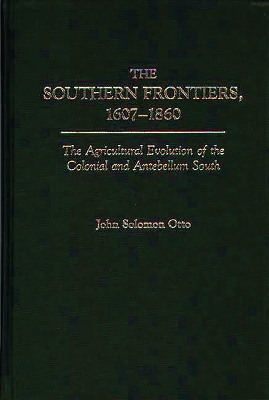Contributions in American History
1 total work
Although many specialized studies have dealt with the colonial and antebellum American South, very little attention has been paid to the Southern agricultural frontiers before 1860. This study focuses on agriculture, the primary economic activity and the single most important factor in shaping the South's colonial and antebellum frontiers. After examining the agricultural economy on the Southern seaboard during colonial times, Otto explains the economic and environmental forces that led to the expansion of upland and lowland agriculturalists across the trans-Appalachian South during the antebellum period.
Although many specialized studies have dealt with the colonial and antebellum American South, very little attention has been paid to the Southern agricultural frontiers before 1860. This study focuses on agriculture, the primary economic activity and the single most important factor in shaping the South's colonial and antebellum frontiers. After examining the agricultural economy on the Southern seaboard during colonial times, Otto explains the economic and environmental forces that led to the expansion of upland and lowland agriculturalists across the trans-Appalachian South during the antebellum period. Synthesizing sources drawn from history, geography, anthropology, and folklife, Otto has added an important new dimension to our knowledge of the American South. This book is an appropriate resource for courses or studies in Southern and American history, historical geography, folklife, anthropology, and agricultural history.
